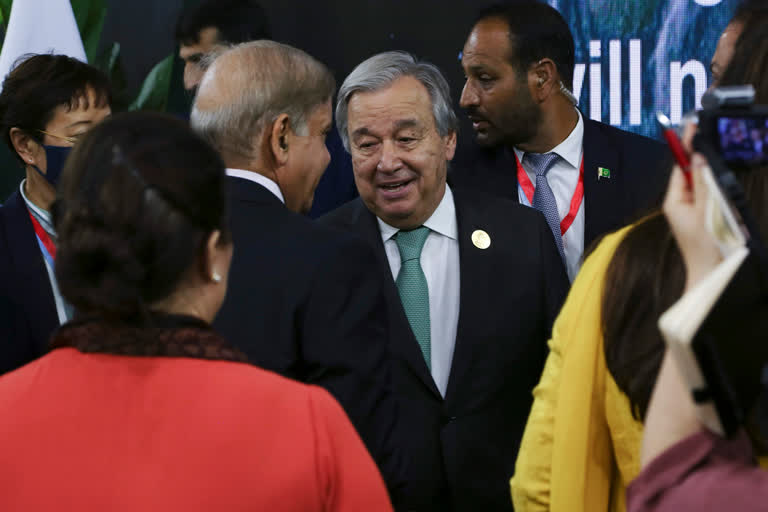New Delhi: United Nations Secretary-General António Guterres on Monday unveiled the Early Warnings for All Action Plan at the 27th Climate Change conference, popularly known as COP27, in Sharm al Sheikh in Egypt. As per the UN chief, it will cost the equivalent of just 50 cents per person per year for the next five years to extend benefits of the 'Early Warnings' initiative to everyone on Earth.
The executive action plan for the initiative calls for new targeted investments between 2023 and 2027 of US$ 3.1 billion – a sum that would be dwarfed by the benefits, experts said. This would cover observations and forecasting, preparedness and response, and communication of early warnings.
Guterres announced the plan at the conference attended by government and UN organization leaders, financing agencies, big tech companies, and the private sector during the World Leaders Summit at the UN climate change negotiations. The plan was drawn up by the World Meteorological Organization and partners, and it was supported by a joint statement signed by 50 countries.
“Ever-rising greenhouse gas emissions are supercharging extreme weather events across the planet. These increasing calamities cost hundreds of billions of dollars in loss and damage. Three times more people are displaced by climate disasters than by war. Half of humanity is already in the danger zone,” said Guterres.
Also read:COP27: UN chief tells climate summit, Cooperate or perish
“We must invest equally in adaptation and resilience. That includes the information that allows us to anticipate storms, heatwaves, floods, and droughts. To that end, I have called for every person on Earth to be protected by early warning systems within five years, with the priority to support the most vulnerable first,” he added.
The Executive Action Plan sets out the concrete way forward to achieve this goal. As per the World Meteorological department, the number of recorded disasters has increased by a factor of five, driven in part by human-induced climate change and more extreme weather. This trend is expected to continue. And yet, half of the countries globally do not have early warning systems and even fewer have regulatory frameworks to link early warnings to emergency plans.
Coverage is worst for developing countries on the front lines of climate change, namely Least Developed Countries (LDCs) and Small Island Developing States (SIDS), the World Meteorological department said. Early warning systems are widely regarded as the “low-hanging fruit” for climate change adaptation because they are a relatively cheap and effective way of protecting people and assets from hazards.
“Early warnings save lives and provide vast economic benefits. Just 24 hours' notice of an impending calamity can cut the ensuing damage by 30 percent,” said WMO Secretary-General Prof. Petteri Taalas. The Global Commission on Adaptation found that spending just US$800 million on such systems in developing countries would avoid losses of $3 to 16 billion per year.
